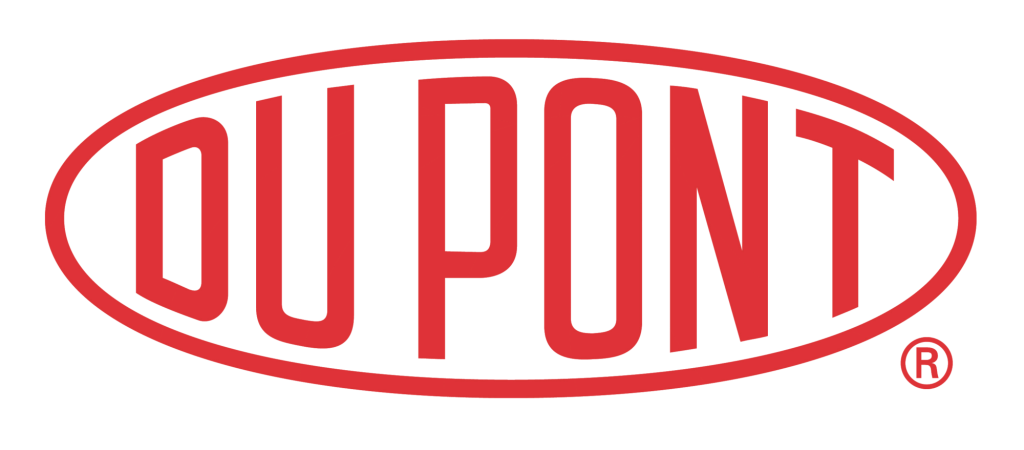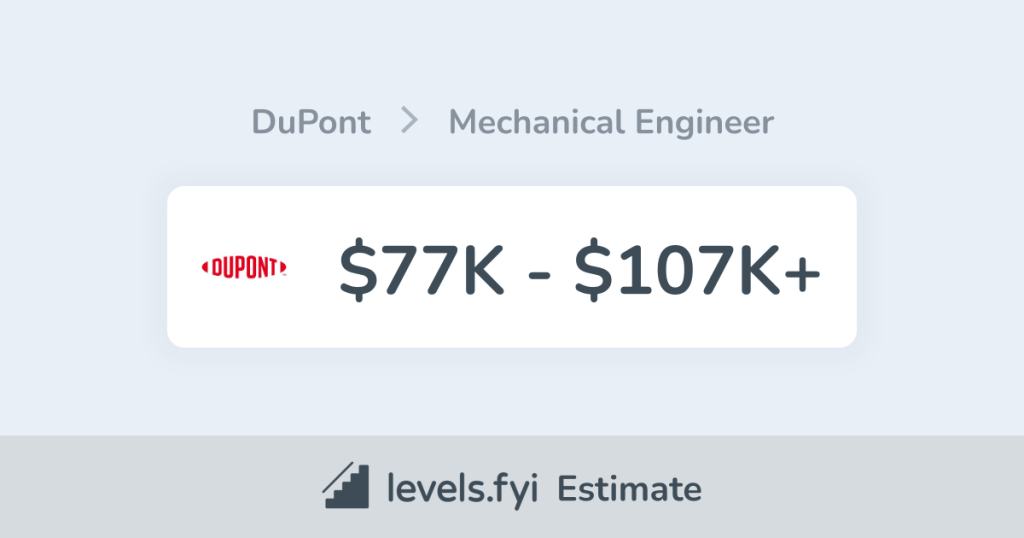
DuPont, a science and technology leader, has a rich history of innovation. Here’s a quick glimpse:
- Chemical Powerhouse: They develop and manufacture a vast array of industrial and specialty chemicals, materials, and agricultural products.
- Pioneering Spirit: From nylon and Teflon to Kevlar and Corian, DuPont has a long list of iconic inventions that have transformed various industries.
- Global Reach: With a presence in numerous countries, they operate at the forefront of scientific discovery, impacting lives worldwide.
What are the selection and Interview process of DuPont?
The selection process at DuPont can vary depending on the specific role, location, and level of experience. Here’s a general path you might encounter:
1. Application: Submit your resume and cover letter through DuPont’s careers website.
2. Screening and Review: Recruiters will assess your application against the qualifications and experience outlined in the job description.
3. Interview Stages (may vary):
- Phone Interview: An initial phone conversation with an HR representative or hiring manager to discuss your background, motivations, and interest in the chemical and materials science industry, and how it aligns with DuPont’s areas of expertise.
- Technical Screen (for some roles): This might involve assessments evaluating your knowledge of relevant scientific principles or engineering concepts (depending on the role).
- In-Person Interview(s): These interviews may involve multiple rounds with hiring managers from relevant departments (e.g., research & development, sales, engineering, manufacturing) and potentially senior leadership depending on the role. Here’s what you might encounter based on the role:
- Scientific or Engineering Roles: Be prepared for in-depth discussions about your scientific background, relevant research experience, and technical skills (e.g., proficiency in specific software tools).
- Sales or Business Development Roles: Expect questions about your understanding of the chemical or materials science market, DuPont’s specific products and their applications, and your ability to build strong relationships with clients.
- General Interview Questions: Behavioral interview questions using the STAR method (Situation, Task, Action, Result) will be used to assess your relevant skills and experiences across various roles.
4. Additional Assessments: Some positions may involve online assessments to evaluate problem-solving skills, basic math skills (for some roles), or cultural fit.
5. Offer and Background Check: Successful candidates will receive a job offer contingent on a background check.
Tips for Success:
- Research DuPont thoroughly, understanding their diverse product portfolio (chemicals, materials, agriculture), focus on innovation, and their global reach.
- Tailor your resume and cover letter to highlight relevant skills and experiences that demonstrate a strong fit for the specific role you’re applying to.
- Be prepared for technical discussions or assessments relevant to the scientific or engineering field (depending on the role).
- Practice your behavioral interview skills using the STAR method.
- Show your passion for science and innovation (a major plus!), strong analytical and problem-solving skills, and an eagerness to contribute to a company shaping the future through cutting-edge materials and technologies.
By understanding DuPont’s selection process and showcasing your relevant qualifications, you can increase your chances of landing an interview and a position at this leading science and technology company.
How many rounds of interview conducted in DuPont?
The DuPont hiring process typically involves multiple rounds, but the exact number can vary depending on the specific role, location, and even the time of year you’re applying [1]. Here’s a general idea:
Number of Interview Rounds for Freshers at DuPont:
- Possible Range: Two to four interview rounds [1, 2, 3].
Here’s a possible breakdown of the interview stages:
- Initial Application: Submit your resume, cover letter, and you might encounter a web-based assessment about your skills or suitability for the role (often for technical positions) [1, 2, 3].
- Phone Interview (possible): A recruiter might conduct a brief phone interview to discuss your experience and interest in DuPont [2, 3].
- In-Person Interviews (one to three rounds): These could involve discussions with [2, 3]:
- Hiring Manager or Team Members: They will assess your qualifications, experience (if any), and fit for the specific role (e.g., technical skills for engineering positions, knowledge of scientific concepts for chemistry roles).
- Specialists (possible for some roles): For technical roles (e.g., science, engineering), you might meet with specialists to assess your skills or knowledge relevant to the role (e.g., knowledge of specific software used in the department).
- Behavioral Interviewers (possible): You might encounter interviewers who focus on behavioral questions to assess your teamwork, problem-solving approach, and communication skills.
What is the salary for freshers in DuPont?

Publicly available information on exact salaries for freshers at DuPont isn’t advertised on their careers website [1]. Here are ways to get a better idea of the range for entry-level positions:
- Salary Websites: Explore salary websites like Glassdoor or Indeed. Search for “DuPont” and filter by “entry-level” or “freshers” positions in your target location to get a sense of the range for similar roles (e.g., chemical engineer, research associate).
- Salary Negotiation: Be prepared to discuss salary during the offer stage, especially if you have relevant experience or a strong educational background in engineering, science, or a related field. Research salary ranges beforehand and highlight your skills and willingness to learn to justify your desired compensation.
Tips for Landing a Job at DuPont:
- Research DuPont: Learn about their areas of focus in science and engineering across various industries (chemicals, materials, etc.) [1]. Understand their commitment to sustainability and innovation [1]. This demonstrates your genuine interest during the interview.
- Highlight Relevant Skills and Experience: Tailor your resume to showcase skills and experiences relevant to the specific role you’re applying for. This could include technical skills (for engineering positions), scientific knowledge (for chemistry roles), analytical skills, communication skills, and a passion for science and innovation.
- Prepare for Technical and Behavioral Questions: Be prepared to answer technical questions relevant to the role, as well as behavioral questions using the STAR method (Situation, Task, Action, Result) to showcase your problem-solving skills and achievements in previous work experiences (even if not in a scientific field).
By following these steps, you’ll gain a better understanding of the potential interview process and salary range for freshers at DuPont. Remember, the specific details can vary depending on the role and your qualifications. During the interview process, if there’s an opportunity to ask questions, you can inquire politely about the typical interview structure for the position you’re applying for.
Top questions Asked for freshers in DuPont
While there isn’t a publicly available list detailing the absolute top questions asked specifically for freshers at DuPont, here are some general and role-specific questions you might encounter, along with tips for finding more specific information:
General Interview Questions for Freshers:
- Tell me about yourself. (This is a common opening to allow you to showcase your background and career goals)
- Why are you interested in DuPont? (Research the company and their areas of science and innovation to demonstrate genuine interest)
- What are your strengths and weaknesses? (Be honest but focus on framing weaknesses as areas for development)
- Describe a time you faced a challenge and how you overcame it. (Highlight your problem-solving skills)
- Do you have any questions for us? (Prepare insightful questions to show your interest and initiative)
Possible Role-Specific Questions (Depending on the Position):
- Engineering Roles: Expect questions related to your specific engineering discipline (e.g., chemical, mechanical), understanding of relevant scientific principles, and problem-solving skills in a technical context.
- Research & Development: Be prepared for questions about your curiosity, ability to learn new things, and potential research experience (if applicable).
- Business Operations: If the role involves aspects of supply chain or project management, questions might assess your organizational skills, ability to prioritize tasks, and experience working in a team environment.
Tips for Finding More Specific Questions:
- DuPont Careers Website: Explore the careers section of DuPont’s website, particularly under “FAQs” or “Interview Tips”. They might have resources for new hires.
- DuPont Interview Reviews: Look for interview reviews on websites like Glassdoor to get insights from past interviewees.
- Informational Interviews: Consider reaching out to DuPont employees on LinkedIn for informational interviews (brief conversations to learn more about the company and specific roles).
How to apply for job in DuPont?

1. Search for Open Positions:
- Head to DuPont’s careers website: DuPont’s careers page.
2. Target Your Search:
- Utilize filters to find “Entry Level” or “Associate” positions that align with your skills and interests. You can also filter by Location, Business Unit (e.g., Electronics & Materials, Safety & Construction), or Keyword.
3. Apply Online:
- Once you discover a relevant opportunity, click “Apply Now” and follow the instructions. You’ll likely need to submit:
- Resume: Tailor your resume to highlight relevant skills and achievements from academics, projects, or volunteer work. Quantify your achievements whenever possible (e.g., improved efficiency by Y% or managed a team project of X size).
- Cover Letter (Optional, but Recommended): Craft a compelling cover letter that showcases your genuine interest in the specific role and DuPont. Tailor it to the position and highlight why you’re a strong fit (mention transferable skills if experience is limited).
4. Tips:
- Highlight Transferable Skills: Even without extensive work experience, focus on transferable skills like communication, teamwork, or research abilities gained through academics or volunteer work.
- DuPont Internship Programs: Explore DuPont’s internship programs if you’re an early-career professional. This can be a great way to gain experience and potentially land a full-time position.
- Follow DuPont on Social Media: Consider following DuPont on LinkedIn or other social media platforms to stay updated on job postings and company culture.
By combining this information with research on DuPont and the specific role, you can be well-prepared to answer a variety of interview questions and increase your chances of landing an entry-level position at the company.
Say goodbye to the hassles of bike ownership! MotoShare.in offers affordable rentals, whether you need a scooter for errands, a bike for a road trip, or a reliable ride to explore new cities.

 Starting: 1st of Every Month
Starting: 1st of Every Month  +91 8409492687
+91 8409492687  Contact@DevOpsSchool.com
Contact@DevOpsSchool.com
